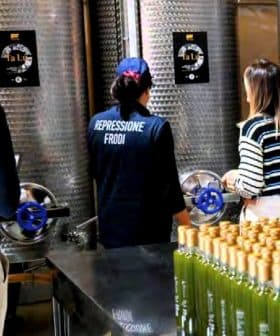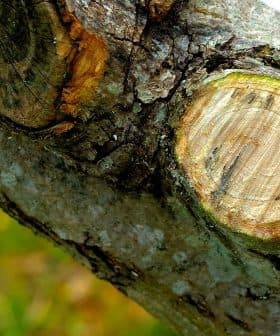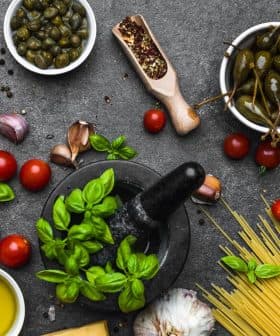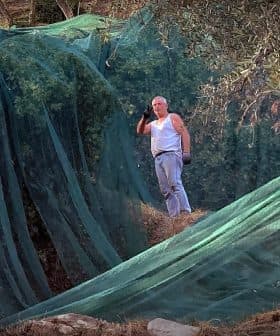Italy Arrests 33 Accused of Olive Oil Fraud
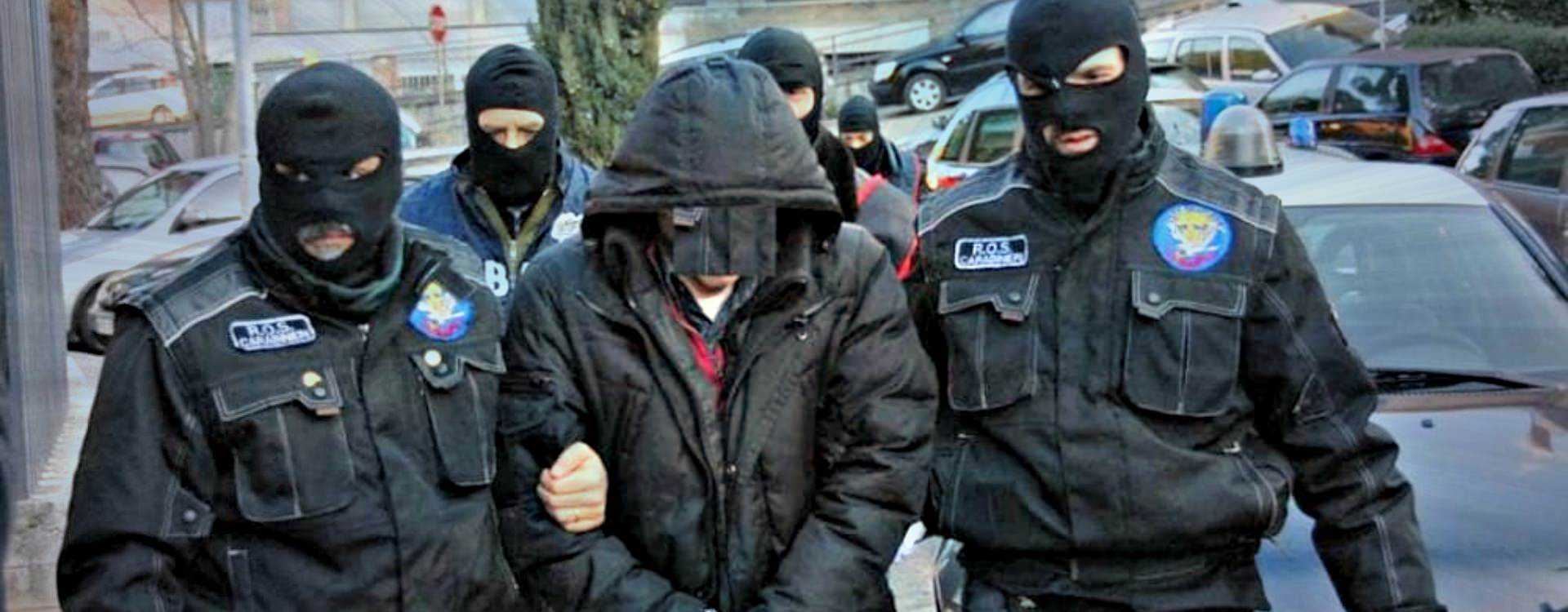
Italian authorities arrested 33 suspects from the Calabrian mafia’s Piromalli clan for various crimes, including exporting fake extra virgin olive oil to the U.S., leading to the seizure of $42.8 million in assets and charges for mafia association, attempted murder, drug trafficking, money laundering, and fraud. The Piromalli clan is believed to be a powerful faction within the Ndràngheta, controlling various industries in Italy and allegedly participating in an elaborate scheme to sell adulterated olive oil as high-quality extra virgin olive oil in the U.S., posing economic and health risks.
Italy’s Carabinieri arrested 33 suspects in the Calabrian mafia’s Piromalli clan, a criminal enterprise whose illicit dealings allegedly include exporting fake extra virgin olive oil to the United States.
About $42.8 million in assets were seized and charges filed against the suspects including mafia association, attempted murder, drug trafficking, money laundering and fraud, the police told the Investigative Reporting Project of Italy.
The Calabrian mafia, also known as the Ndràngheta, is believed to be the wealthiest, most powerful criminal network in Italy, and the Piromalli are believed to be a leading clan within that organization. In addition to drug trafficking, authorities believe they’re major players in agromafia, including an elaborate olive oil scheme.
According to investigators, the Piromalli were importing olive pomace oil, a product that’s extracted from already-pressed fruit pulp using chemical solvents, then labeling the low-quality, adulterated oil products as extra virgin olive oil and exporting it to the U.S. Those products were sold through retail chains in New York, Boston and Chicago, the IRPI revealed.
The Piromalli were capable of executing this scam because they have a grip on the right people in the right places, authorities allege. The clan is believed to control areas in and around the southern municipality of Gioia Tauro, including the region’s real estate, most of the food and agriculture businesses, and its strategically located port.
They have also allegedly extended their reach to penetrate the distribution chains in the northern city of Milan and have taken over businesses that export olive oil to the U.S. the Business Standard reported.
Selling fake olive oil isn’t a pauper’s scheme. Last year, high-quality olive oil was selling for as much as $50 a gallon while fake products cost only $7 to make, a 60 Minutes segment noted. “The profit margin can be three times better than cocaine,” journalist Tom Mueller said during the show.
In addition to significant economic losses, Italy faces the effects of a damaged reputation. The country is the top olive oil exporter and the U.S. is the world’s third-largest market, with $2 billion in sales. According to Bloomberg, that includes hundreds of millions of dollars that are spent on products imported from Italy.
Still, olive oil only represents a fraction of the overall American cooking oil market. Consumption is less than one liter per capita, said Bloomberg. That leaves a lot of growth potential for olive oil and suppliers like Italy, but fraudulent products could undermine confidence in their products.
Food fraud also raises health concerns. There’s the risk of someone having an allergic reaction because they believe they’re consuming one thing while could actually consume an allergen. And some agromafia products have also been found to include low-quality contaminants, which presents an additional set of risks.
Italy hasn’t turned a blind eye to the problem and has a special unit devoted to food fraud. According to 60 Minutes, as of last year, that squad included 60 police capable of identifying fraudulent olive oil by taste tests and 1,100 officers who focus on inspection and investigation.





